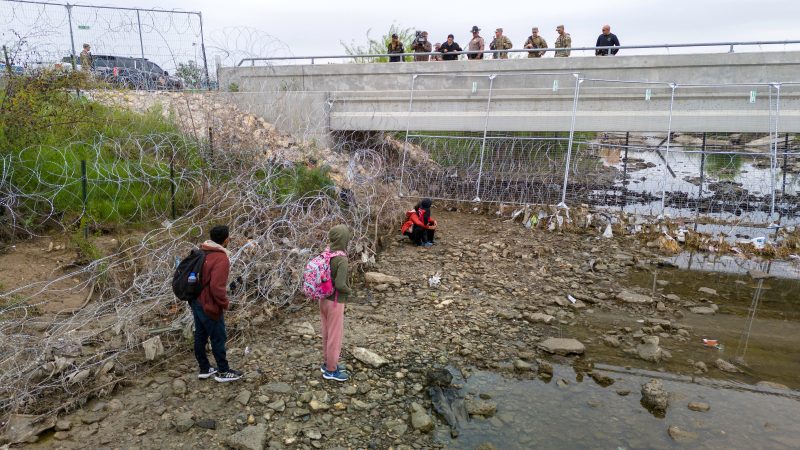In a recent decision that has sparked heated debates and raised concerns about the treatment of migrants, the Supreme Court of the United States has given the green light for Texas authorities to arrest and deport undocumented individuals. The ruling has significant implications for immigration policy and enforcement at the state level, setting a precedent that could potentially reshape the landscape of migrant rights and protections in the country.
The legal battle that led to this landmark decision began when Texas Governor Greg Abbott issued an executive order directing state troopers to stop vehicles suspected of transporting migrants who had crossed the border illegally. The order also authorized law enforcement officials to detain these individuals and transfer them to U.S. Customs and Border Protection for deportation proceedings. The Biden administration swiftly challenged the order, arguing that it encroached upon federal jurisdiction and undermined the government’s authority over immigration enforcement.
The Supreme Court’s decision to allow Texas to proceed with its enforcement efforts signals a shift in the balance of power between the federal government and individual states in matters of immigration. While immigration policy has traditionally been the purview of the federal government, the Court’s ruling has opened the door for states to take a more active role in policing and controlling the movement of undocumented migrants within their borders.
Critics of the decision have expressed concerns about the potential for abuse and discrimination in the enforcement of Texas’ executive order. They argue that empowering state authorities to arrest and detain individuals based solely on suspicion of immigration violations could lead to racial profiling and violations of due process rights. Additionally, the decision raises questions about the effectiveness and fairness of a patchwork system of immigration enforcement, where policies and practices vary widely from state to state.
Proponents of the Supreme Court’s decision point to the need for stronger enforcement measures to address the challenges posed by illegal immigration. They argue that allowing states to play a more active role in policing their borders will help deter unauthorized entry and reduce the burden on federal agencies tasked with immigration enforcement. Supporters also maintain that state-led efforts can complement federal initiatives and provide additional resources to address the complex issues surrounding migration and border security.
As Texas moves forward with its enforcement actions under the guidance of the Supreme Court’s ruling, the implications of this decision will continue to reverberate across the country. The intersection of state and federal authority in immigration enforcement has never been more contentious, and the legal and ethical questions raised by Texas’ executive order will likely fuel ongoing debates about the balance between security and human rights in the context of migration. The Supreme Court’s decision is a critical juncture in the evolving landscape of immigration policy, with far-reaching consequences for the rights and protections of migrants in the United States.


























